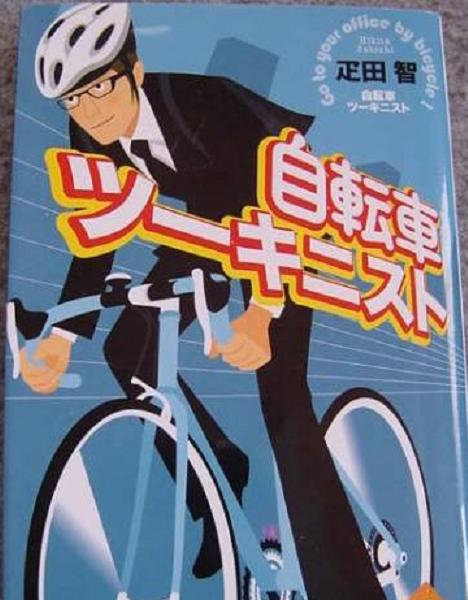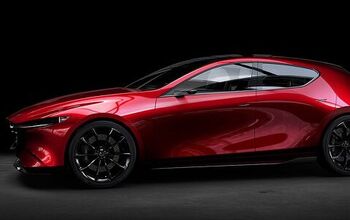TTAC Investigates: Why Japanese Suddenly Hate Cars

Yesterday brought you news of the tepid Japanese car market that has been down 26 percent for the year. Commenter Alex Nigro DEMANDED the answer to “Are Japanese people still not interested in driving?”
The Nikkei [sub] immediately went on the case and reports today that there is one segment in the industry that is booming: Bicycles. Writes the Nikkei:
“The March 11 earthquake triggered an increase in the number of people who commute to work by bike, and new business are cropping up to accommodate this trend, including high-end park-and-shower services in central Tokyo.”
Two years ago, the Tokyo government started to promote commuting by bicycle. There even was a new word for the two-wheeled salary-man: “Tsuukin-isuto.” That spurred a mild trend, but not necessarily a craze of Japanese proportions. Did you ever had the pants of an Armani get into the chain?
Then, disaster struck. Millions of Japanese were stranded in downtown Tokyo on March 11 afternoon after the 8.9-magnitude earthquake closed down the sprawling mass transit system. “Suddenly, bikes became a lot more attractive to many people,” says the Nikkei. In a matter of minutes, bicycle stores were empty.
In the aftermath, saving power replaced Buddhism and Shinto as a religion in Japan. Salary-men were urged to ditch their blue suit and tie for “super cool biz” (short sleeves and open collars). Thermostats of the A/C were set to barely bearable, the nation perspired for a noble cause, and the bike race was on.
In short order, bikes turned into big business. Downtown office buildings opened high-tech full-service indoor bicycle parking operations: Racks for the bikes, showers, lockers. The monthly fees are steep: They range from $200 to $300 a month per bike. That approaches Manhattan fees – for a car. But in Tokyo, I get a free shower and don’t have to tip Gonzalez. I can also buy a bike for the same price.. A really cool bike.
The real craze in Tokyo is not the Roppongi daytraders that switched his Porsche for a Miyata (the bicycle.) The REAL craze in Japan is mamachari.
That’s a Japanese portmanteau of “mama” (mama) and “charinko” (bicycle): It denotes a utility bike with chainguard, fenders, rack, skirt guard, dynamo lights, baskets, and child carriers. It used to be to conveyance of choice of a housewife with two small children and shopping bags. Helmets? Who needs them?
Now, mamachari have been co-opted by the super-cool set. There are weekly mamachari meets, mamachari race s, and of course, gobs of mamachari blogs.
If you want to pick up a girl in Tokyo, forget dangling the keys to your 911. The operative phrase is “want to ride side-saddle on my mamachari?”
After a few hundred yards, claim you are out of breath, and lock the bike to a lamp post in front of a love hotel: “Shower-ga hitsu you desu.” (We need a shower.)

Bertel Schmitt comes back to journalism after taking a 35 year break in advertising and marketing. He ran and owned advertising agencies in Duesseldorf, Germany, and New York City. Volkswagen A.G. was Bertel's most important corporate account. Schmitt's advertising and marketing career touched many corners of the industry with a special focus on automotive products and services. Since 2004, he lives in Japan and China with his wife <a href="http://www.tomokoandbertel.com"> Tomoko </a>. Bertel Schmitt is a founding board member of the <a href="http://www.offshoresuperseries.com"> Offshore Super Series </a>, an American offshore powerboat racing organization. He is co-owner of the racing team Typhoon.
More by Bertel Schmitt
Latest Car Reviews
Read moreLatest Product Reviews
Read moreRecent Comments
- Honda1 Unions were needed back in the early days, not needed know. There are plenty of rules and regulations and government agencies that keep companies in line. It's just a money grad and nothing more. Fain is a punk!
- 1995 SC If the necessary number of employees vote to unionize then yes, they should be unionized. That's how it works.
- Sobhuza Trooper That Dave Thomas fella sounds like the kind of twit who is oh-so-quick to tell us how easy and fun the bus is for any and all of your personal transportation needs. The time to get to and from the bus stop is never a concern. The time waiting for the bus is never a concern. The time waiting for a connection (if there is one) is never a concern. The weather is never a concern. Whatever you might be carrying or intend to purchase is never a concern. Nope, Boo Cars! Yeah Buses! Buses rule!Needless to say, these twits don't actual take the damn bus.
- MaintenanceCosts Nobody here seems to acknowledge that there are multiple use cases for cars.Some people spend all their time driving all over the country and need every mile and minute of time savings. ICE cars are better for them right now.Some people only drive locally and fly when they travel. For them, there's probably a range number that works, and they don't really need more. For the uses for which we use our EV, that would be around 150 miles. The other thing about a low range requirement is it can make 120V charging viable. If you don't drive more than an average of about 40 miles/day, you can probably get enough electrons through a wall outlet. We spent over two years charging our Bolt only through 120V, while our house was getting rebuilt, and never had an issue.Those are extremes. There are all sorts of use cases in between, which probably represent the majority of drivers. For some users, what's needed is more range. But I think for most users, what's needed is better charging. Retrofit apartment garages like Tim's with 240V outlets at every spot. Install more L3 chargers in supermarket parking lots and alongside gas stations. Make chargers that work like Tesla Superchargers as ubiquitous as gas stations, and EV charging will not be an issue for most users.
- MaintenanceCosts I don't have an opinion on whether any one plant unionizing is the right answer, but the employees sure need to have the right to organize. Unions or the credible threat of unionization are the only thing, history has proven, that can keep employers honest. Without it, we've seen over and over, the employers have complete power over the workers and feel free to exploit the workers however they see fit. (And don't tell me "oh, the workers can just leave" - in an oligopolistic industry, working conditions quickly converge, and there's not another employer right around the corner.)



































Comments
Join the conversation
you want me to do what now?
do what now?